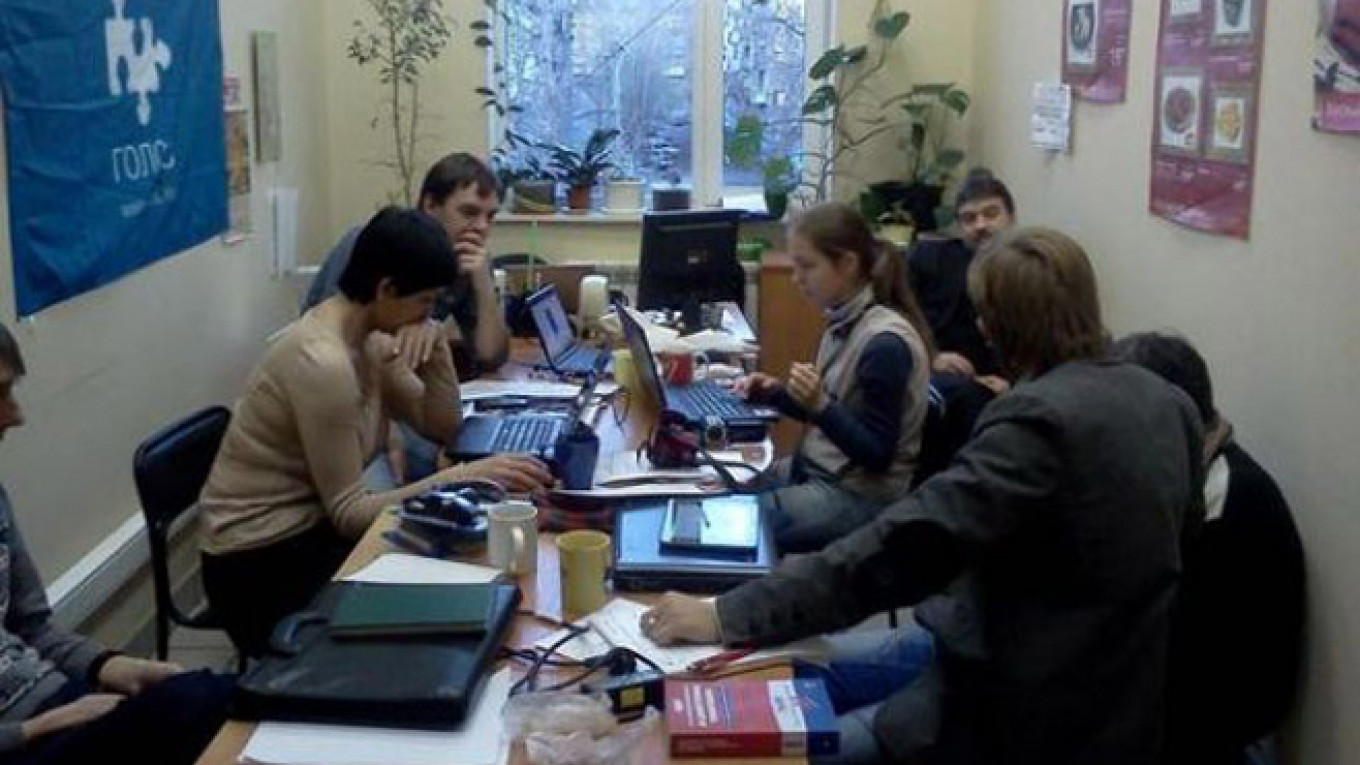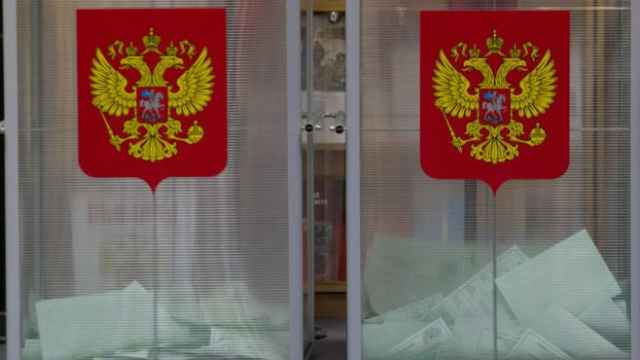The Justice Ministry is revoking the registration of election-monitoring group Golos as a "foreign agent" and has refunded the fines the non-governmental organization has paid for refusing to register voluntarily, the group said.
In a surprise announcement that followed searches at the organization's offices and its employees' homes earlier this month, the Justice Ministry has begun the process of removing Golos from its lists of "foreign agents," the group said Wednesday via Twitter. Ruling that the designation was an "error," the ministry has also refunded the fines, it added.
"Unexpectedly, the Justice Ministry has shown support for our fundraising campaign! The fines have been refunded!" Golos quipped in another message.
Founded in 2000, Golos played a key role in exposing widespread violations during the 2011 parliamentary elections. In 2013, it became the first organization in Russia to be slapped with the "foreign agent" label.
Investigators raided its offices and the homes of Golos leaders on July 7, seizing computers and memory cards, in what the group's lawyer described as an attempt to paralyze its work.
But Golos has passed a Justice Ministry "screening," allowing it to be removed from the "foreign agents" list, Grigory Melkonyants, a member of the NGO's council, told Dozhd television.
Melkonyants said his group "got a refund of a 400,000 ruble fine that we paid for not having voluntarily registered [as a 'foreign agent']," Dozhd reported. The amount equals about $6,975 at today's rate.
But while pressure seemed to be off Golos, a court in the Urals imposed the same fine Wednesday on non-governmental group Perm-36 for failing to register as a "foreign agent." The group operated a museum commemorating gulag prisoners on the site of a former labor camp.
Russian law requires groups that receive funding from abroad and engage in vaguely defined political activities to register as "foreign agents" and identify themselves as such on any printed material — a dismal prospect in the eyes of many activists, given that the Soviet-era term dates had for decades been used to mean "spy."
A Message from The Moscow Times:
Dear readers,
We are facing unprecedented challenges. Russia's Prosecutor General's Office has designated The Moscow Times as an "undesirable" organization, criminalizing our work and putting our staff at risk of prosecution. This follows our earlier unjust labeling as a "foreign agent."
These actions are direct attempts to silence independent journalism in Russia. The authorities claim our work "discredits the decisions of the Russian leadership." We see things differently: we strive to provide accurate, unbiased reporting on Russia.
We, the journalists of The Moscow Times, refuse to be silenced. But to continue our work, we need your help.
Your support, no matter how small, makes a world of difference. If you can, please support us monthly starting from just $2. It's quick to set up, and every contribution makes a significant impact.
By supporting The Moscow Times, you're defending open, independent journalism in the face of repression. Thank you for standing with us.
Remind me later.






